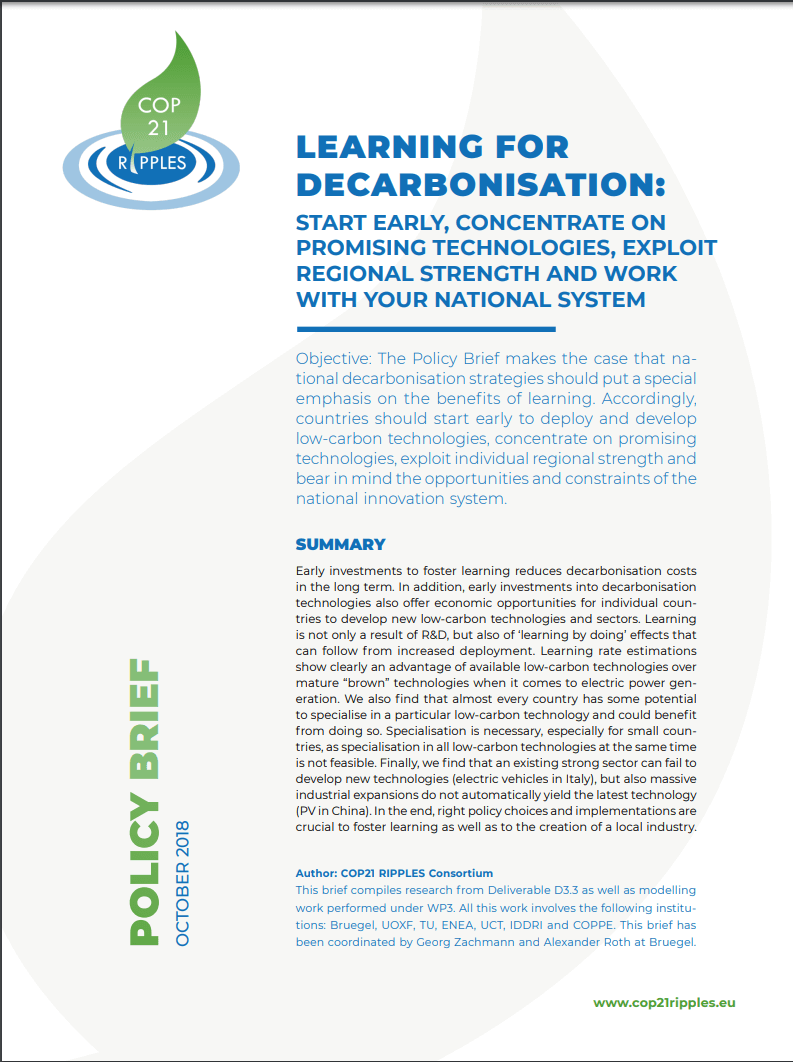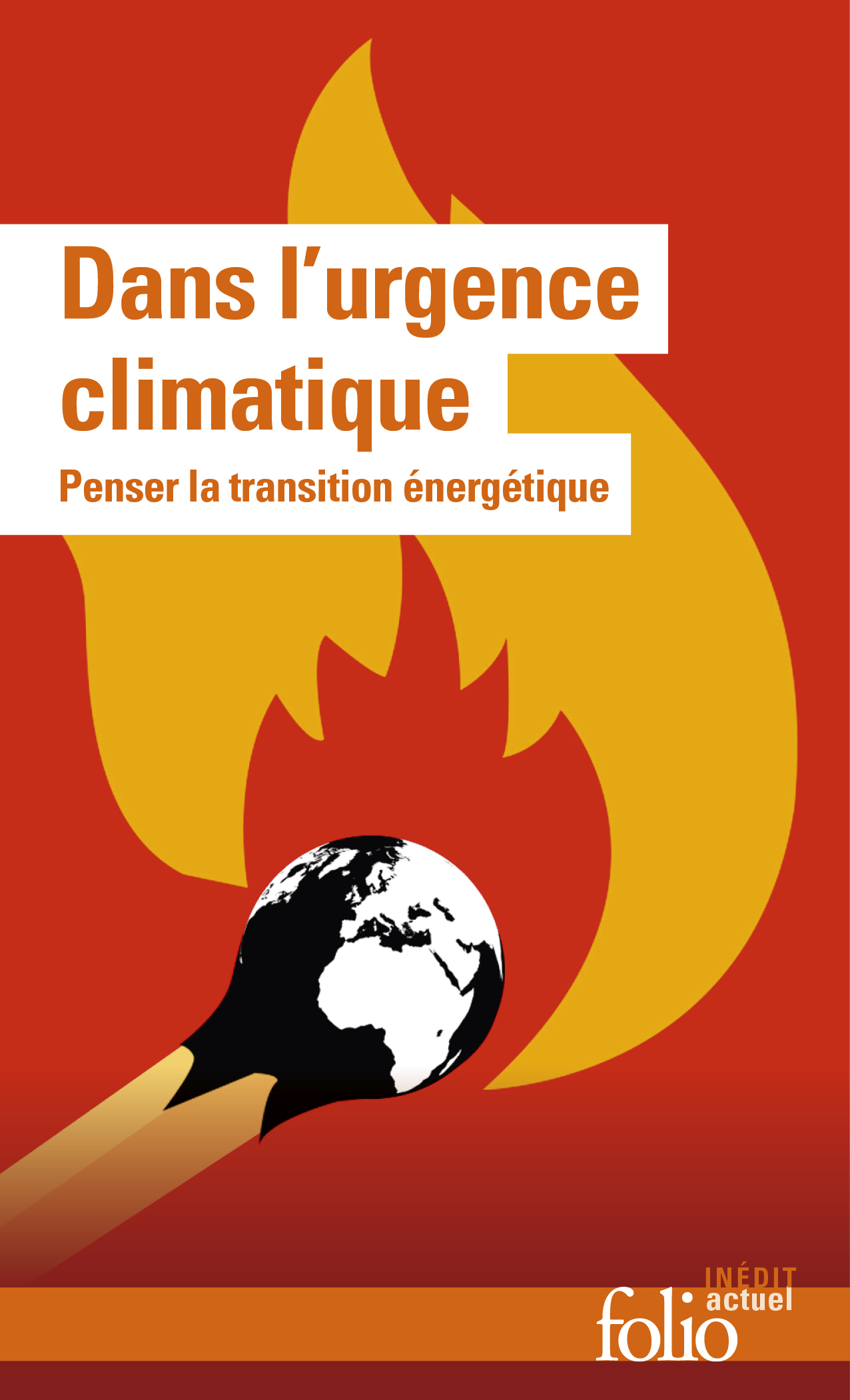External Publication
Learning for decarbonisation
This external publication, put together in the framework of the COP21 RIPPLES Consortium, makes the case that national decarbonisation strategies should put a special emphasis on the benefits of learning. Accordingly, countries should start early to deploy and develop low-carbon technologies, concentrate on promising technologies, exploit individual regional strength and bear in mind the opportunities and constraints of the national innovation system.
The project leading to this publication [COP21 RIPPLES] has received funding from the European Union’s Horizon 2020 research and innovation programme under grant agreement No 730427.

Early investments to foster learning reduces decarbonisation costs in the long term.
In addition, early investments into decarbonisation technologies also offer economic opportunities for individual countries to develop new low-carbon technologies and sectors.
Learning is not only a result of R&D, but also of ‘learning by doing’ effects that can follow from increased deployment. Learning rate estimations show clearly an advantage of available low-carbon technologies over mature “brown” technologies when it comes to electric power generation.
The authors also find that almost every country has some potential to specialise in a particular low-carbon technology and could benefit from doing so. Specialisation is necessary, especially for small countries, as specialisation in all low-carbon technologies at the same time is not feasible. Finally, we find that an existing strong sector can fail to develop new technologies (electric vehicles in Italy), but also massive industrial expansions do not automatically yield the latest technology (PV in China). In the end, right policy choices and implementations are crucial to foster learning as well as to the creation of a local industry.










